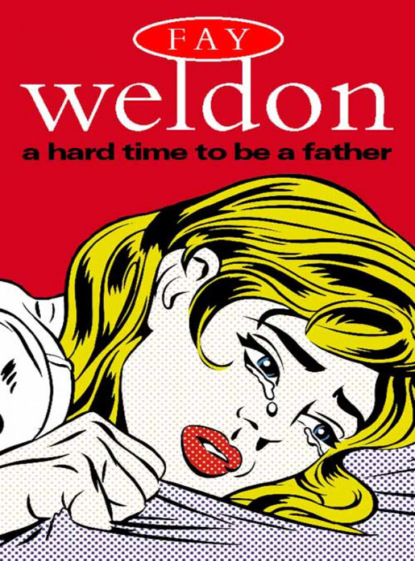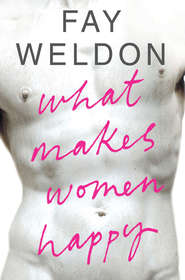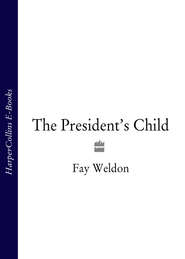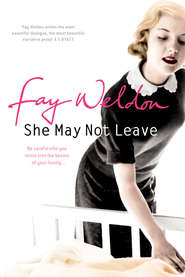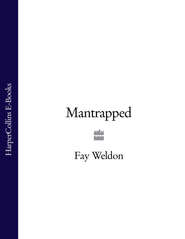По всем вопросам обращайтесь на: info@litportal.ru
(©) 2003-2024.
✖
A Hard Time to Be a Father
Автор
Год написания книги
2018
Настройки чтения
Размер шрифта
Высота строк
Поля
‘Lust and self-interest,’ said Maureen, before she had time to think. They were sitting together in a Chinese restaurant after a film. Audrey was eating crispy banana in batter, which Maureen of course had declined.
‘Oh,’ said Audrey. ‘I see them liking me.’
Maureen felt such a spasm of rage she swallowed too great a mouthful of too-hot calorie-free China tea and burned her throat, and it was dry for days. But she didn’t say anything. What was there to say? She forgot it.
What she didn’t forget was Audrey standing on top of a sandhill one day in spring, in a one-piece swimsuit, hair flying in the wind, turning back to the group that followed her, that would follow her anywhere, calling out, ‘Come on, everyone!’ and everyone followed. Friends. Company. Party times, good times, crowded times, peopled times; the whole human race whizzing round the benign fulcrum that was Audrey. ‘Come on, everyone!’ and everyone came, and so did Maureen, against her will yet by her will. She thought of the quiet, damp regularity of her childhood home, the single cat shut out at night, breakfast for two, mother and daughter, laid before they went to bed: some blight had entered her soul too deeply. Up the sandhill she ran with the others, and Audrey was in the sea first. ‘Come on in, everyone! The water’s lovely!’ But of course it wasn’t, Audrey was joking; it was icy, everyone screamed and Audrey splashed. How dare she! Maureen was furious. But everyone had a good time, and so did she. Orchestrating Audrey, that’s what she was: weaving everyone into patterns of pleasure! How was it done?
Eventually their paths parted. Audrey with her two-two went off to muddle through some Social Science course; Maureen, with her two-one, went off to Brussels to work for the EEC, always her ambition. There had seemed something so clear and wholesome and ordered, not to mention well-paid, about the notion of a job in such a city, with a little car of her own, a little flat to be private in. And so it had turned out. Maureen had to chuck the Secretary of the Debating Society, because he went to work for Marks & Spencer in Newcastle, but these things often happen to student relationships. All the same Maureen was quite put out when she found Jim had married within the year, a colleague ten years older than himself. That summer she went home to her mother in Paignton for her annual holiday, but it was miserable and boring; she resolved never to do it again. Twelve years in Brussels, and creeping up in the Agricultural Division, and lonely, and getting herself involved with a married man (but they were all married: what was she to do?) which kept her lonelier because of all the waiting about for the telephone to ring and the secrecy and the unkept promises and the no social life. It took her for ever to break it off (what had happened to her?) but finally she did.
The very next day she got a letter from Audrey. Could they meet? Just like Audrey, Maureen thought, why should anyone want to keep in touch with anyone just because they’d been to the same college, been close together in the alphabet. But she wrote back. Audrey invited Maureen to stay for Christmas. Yes, Audrey was married (well, she would be, wouldn’t she: with three children). They lived in the country, with lots of animals. Just like Audrey, thought Maureen, come-on-everyoneing into something no doubt damp, muddy, messy, noisy, with cat crap in corners. But Maureen went; she had come to dislike Christmas after seven seasons with a married man.
Audrey’s house was a mess. Of course it was. Maureen put on rubber gloves and helped clear up; helped get the over-decorated Christmas tree steady on its pins, the stockings done, endeared herself to the children by handing out Mars bars in a sugar-free household, and keeping Audrey’s husband Alan entertained while Audrey muddled through the children’s bedtimes and prepared four kinds of stuffing for two small turkeys because that was more fun than one stuffing and an apple in a single large turkey.
‘But it’s more work, Audrey.’
‘I know it is, Maureen, but we’ve all got used to two turkeys. Family life is all ritual.’
Maureen doubted that ritual was enough. Alan was a political journalist with left leanings; he had to reinspect his own political stance at least three times a year. It didn’t seem to Maureen that Audrey was taking much notice of what was going on in her husband’s head: she favoured a kind of ongoing warm emotional demonstration by way of keeping him happy.
‘Darling, what’s the matter, what’s the matter?’ she would cry, flinging her arms round him and embracing him as he stared at the electricity bill (two turkeys cost a third more to cook than one, as Maureen pointed out) until he unwillingly smiled. Maureen understood the unwillingness very well. In fact she thought she understood Alan very well. She looked round the ingredients of the household: the children, the warmth, the animals, the mud tramped in and out, the friends coming and going – they came for miles – and thought, with a little reorganisation this would do me very well. She thought she would have it for herself.
She had to wait four years. In that time she became a frequent visitor to the household. Long weekends, Christmas, holidays, part of the family. Then Audrey had, as Maureen knew she would, her ritual affair with a married man. Maureen knew the anatomy of that very well. ‘I feel so bad about it,’ mourned Audrey, chopping Christmas nuts for the stuffing of one of the turkeys. ‘I love Alan, but I just can’t stop myself.’
‘I expect you just want attention and flattery and to feel loved,’ said Maureen, carefully. She’d read enough women’s magazines in her time, oh yes, many a one since her college days. ‘The things Alan isn’t good at. Such a pity he isn’t more demonstrative. Then you wouldn’t have to look for love outside your marriage.’
Audrey’s tears fell into the couscous and lemon peel, and made the stuffing a fraction soggier than it should have been.
‘If only I could tell Alan, if only I could talk to him about it, I’d feel so much better in my mind.’
‘Perhaps you should,’ said Maureen, not believing her luck. ‘You have such a strong marriage. If Alan knew the lengths you’d been driven to he’d be horrified. He’d really work at saving the marriage, to make sure this kind of thing never happened again.’
‘You mean, confess?’ asked Audrey, her swift hands pausing, some glimmer of common sense illuminating the dark recesses of her lovesick mind, but only for a moment, not long enough. Her lover was as married as she was, glooming over his Christmas Eve whisky in some other household, missing her as she was him, lost to her for the season.
‘It’s hardly confessing,’ said Maureen. ‘It’s just being honest. How can a marriage as close as yours and Alan’s work if you’re not honest with one another? I think you owe it to your marriage, and to Alan, to tell him all.’ Then Maureen went out for a walk with the children, in the woods, where the leaves were wet with mist, and tried out ‘Come on, everyone!’ as she produced Mars bars from her bag. How they rushed. It worked.
Audrey told Alan about the affair, as the two of them filled Christmas stockings. She told him all about her secret love, about trystings in the backs of cars and offices, and behind hedges – it had been going on since the summer – and how she really loved Alan. If only he was a bit kinder and nicer to her it need never have happened, but he’d let things get stale and how much she valued her marriage.
‘Don’t talk like the back of a women’s magazine,’ was all Alan said, before hitting his wife from one side of the room to another, and by Boxing Day Audrey had packed her bags and gone. She’d had to go, screaming and hysterical, leaving the children, the matrimonial home and all, but it didn’t help her a bit in the divorce. Technically, she’d deserted. And her lover decided to stay loyal to his wife, as married lovers will. They want excitement, not legality. Just as well there was Maureen there to help the family through the rituals of that dreadful Christmas Day – Maureen knew the domestic ropes so well, as Alan’s mother had observed. And by the next Christmas Maureen was not just installed in the house but pregnant as well, with her first child, and calling out ‘Come on, everyone!’ at meal times, along with the best, though she didn’t often cook herself, having help in the house, and a very good job (considering the local wage structure) running the local branch of the Farmer’s Union.
‘Don’t say that!’ Alan would beg. ‘Don’t say “Come on, everyone!”’
‘Why not?’
‘It irritates me. I don’t know why.’
‘Then you’re just being irrational,’ said Maureen firmly, and went on doing it. For a time her ‘Come on, everyone!’ was rather less peopled than Audrey’s had been – but the family friends soon drifted back and everything was just fine, and the damp and droopy rhododendron leaves which rustled in her past, in her dreams, stood up fine and straight and glossy in some glorious imagined sun.
INTO THE FUTURE (#ulink_449a7eb3-e003-534f-a6e7-fc3e0c94878d)
Web Central (#ulink_a84a4237-9426-5476-ab79-9a02abc3003c)
The girl, Mandy Miller aged twenty-three, had made an appointment to see Josie Toothpad, the well-known literary guru, at eleven a.m. But already it was six minutes past, and Mandy’s face had not yet flashed up on Josie’s screen. Six minutes late: six minutes’ worth of ungratefulness, adding to the burden of Josie’s day.
Mandy was privileged; Josie did not normally see aspiring writers: her time was considered better spent writing haiku. But the Authors’ Guild, in this the year 2050, apparently saw promise in the girl, whose writing profile peaked at lyricism and fell to a disastrous trough around compromise, in a decade where such profiles usually ran as straight and flat as the heart trace of someone newly dead. So Josie had decided to be generous with her time.
Josie filled in the unusual waiting minutes playing solitaire. She hadn’t done that for ages. Click, click; cards flying, red and black slicing the screen. Her scores still ran in the six thousands, she was glad to see. Then the familiar melancholy settled in, that stuffy sadness which so often accompanies any obsessional activity and in particular the playing of cards – so much chance, so little skill. Josie adjusted the dial of her drip-feed as Dr Owen her personal physician had so often asked her not, increasing the flow of uppers as opposed to downers. But now she felt edgy. She stopped playing cards, and put her drip-feed back to normal, and meditated. But the edginess wouldn’t go away: it was moving into something remarkably like anxiety; a generalised foreboding. Josie turned up the voltage of the muscle contractors, which kept her limbs viable and strong, but for once the tingling sensation didn’t please her; rather it irritated. She turned the voltage down again. Personal monitors on the banks of screens around the room showed a steady, profound green. She should be in a state of tranquillity, but was not. The gap between what she felt and what the screen said she felt was unusually wide. Perhaps that in itself was the source of her anxiety.
Josie punched in a query to Zelda, her personal therapist. Zelda’s sweet, reassuring face appeared without delay on the main screen and softly asked Josie to profile her current emotions, choosing four appropriate adjectives from the available selection. None seemed to apply. Josie felt bored and closed Zelda, but Zelda wouldn’t be closed. Zelda just blanked out and reappeared before even a mouse had time to click. That was extraordinary.
Zelda said, ‘I’ve been waiting for a call from you, Josie. It’s your birthday, and it’s your right and your privilege to consult me, as you come to terms with the downside of being 132 today.’
The pause between the one, the three and the two were minute but discernible. It was crass of Web Central, Josie thought, to thus remind Heaven-on-Earthers that Zelda was a machine. And Zelda had got it wrong: Josie’s birthday was six days past. What’s more, Zelda once closed had not stayed closed, which could only mean Zelda was now operated directly from Nex Control. Since last week’s acquisition of Web Central’s main shareholding, Nex Control could override the Web Central computer. Which meant, Josie supposed, Nex Control could break into a transmission any time they liked, as an aircraft captain would choose to break into the soundtrack of a film you were watching, with warnings of turbulence. An archaic image, which almost made Josie laugh, for who went anywhere physically, any more? Space was in your head: vast quantities of it, as much as you wanted. You travelled the universe freely through the voices in your mind.
There was something wrong with the transmission: Zelda’s whole face flickered so that her smile looked like a smirk.
Then Zelda blanked out mid-sentence.
‘Is your cup half-empty or half-full? The choice is yours, the options –’
At the time of the takeover, Nex Control had promised there’d be no changes in management style. Promises, promises. Josie remembered enough about pre-Web life to know that the State was never to be trusted: States dealt in lies, as Nietzsche had pointed out; they spoke in all tongues of good and evil, and in the end what was Nex Control but another State, gobbling up smaller territories, grabbing up Web Central, asset stripping?
When in doubt, keep your head down, don’t make waves. Josie completed her mood profile, punching in ‘tranquil, reflective, industrious, confident’. Web Central valued feedback. Web Central had been created by a consensus of newly-young idealists; their computer’s stated mission, to create a Web Heaven and keep it non-political, pacific and angst-free for its subscribers. But that had been fifty years ago: language could have changed, the very words now have a different meaning. Years and years ago, Josie remembered, she had visited the Soviet Empire and watched armies marching around, chanting, ‘Mir, mir, mir,’ and being told mir was their word for peace! That had been in the days when one actually physically travelled, and very alarming they had been.
Josie took off her helmet and at once felt less disturbed. She was both post-menopausal and pre-menstrual, perhaps that was the trouble. For a couple of days a month she suffered from both conditions. Today was one of the days. She knew too much, felt too much, and remembered too much. She was an original Heaven-on-Earther. Sixty years ago a daily dose of Ecstasy 3 which, when combined with good old-fashioned oestrogen, reversed the ageing process and settled the body at around twenty-five years old, had become available to any female who could afford it. Josie could, and did. Ageing, for the pioneer Heaven-on-Earthers, need no longer be a cause of death but there were drawbacks: one’s personality remained cyclical. Those born after the millennium had it easier, as the science of non-ageing was refined.
Still no sign of Mandy. 11.12 a.m. Another of Josie’s screens leapt into life. Traders were ingenious: they found ways of putting their messages on screen no matter how elaborate the steps taken to prevent them.
‘Just punch D O N U T: @ revo.efil,’ required the salesman. He was dressed like a butler, smiled like a fiend, and had a metronome – surely banned by Web Central as a hypnotic device? But perhaps Nex Control permitted them – ticking away in the background.
‘Only punch and you will see
Something long denied and free
Stuffed with honey, fruit and rum
Down your food-chute swift will come.
DONUT!’
Josie, ever suggestible – one became more so with age it seemed – obediently punched up D O N U T: @ revo.efil. She’d been losing weight recently, but Dr Owen hadn’t seemed worried when he had checked her health feedback. How long ago had that been? Sometimes it was hard to tell one day from another. Her fingers, she could see, looked just plain bony – but still pretty. She’d always liked her hands: loved the fingers’ dextrous moving over keys, their sharp, flawless clicking of the mouse. If you liked yourself and loved being alive, what did your chronological age matter? So said Zelda. Let alone what season it was.
Josie steered her chair to the window and opened the blinds; she had to put her drip-feed on hold and detach it to get so far. Alone of her friends, Josie still liked daylight, and a view. Down below the underclass swarmed: the unfortunates who lived on earth, not in the space in their heads. Hardly anyone over twenty-five, the whole lot HIV positive, doomed to death ten years or so after their first sexual contact. So much noise, dirt, and squalor. The underclass lived their short lives intensely: they were even said to write naive poetry, novels, plays. Well, why not? – Shelley, Keats: short lives, great poetry. For a moment Josie almost envied the wretched of the earth. The underclass lived unobserved and uncounted, unnoticed, unfrightened: they’d make way only for the armed delivery squads who attended to the physical needs of an overclass which lived decorously, individual unit by individual unit, stacked neatly one above the other. All Aids-free. They had Zelda to keep them healthy in mind and Dr Owen, healthy in body. Josie’s friend from way back, Honour, had recently filed a memo saying there was increased political unrest in the underclass.
There was a growing sense that computer literacy – forbidden by pain of death amongst the lower orders – was a human right. That was absurd. The underclass was too physical, too little given to logic, ever to cope happily with computers. They were happier as they were, their minds relaxed and unbothered, living in their unbinary world. See how they bustled, jolted, swarmed below.
‘They touch one another so much,’ said Josie aloud, and the sound of her own voice bounced strangely and dangerously off window and walls. She was accustomed to the deadening effect of headphones. ‘All the time they fondle and embrace, push or hit or hug. Kiss and copulate. Flesh touches flesh.’ There was no one to answer her. Josie remembered that nine decades or so back, she had actually given birth to a son, and had shared a living space with a man, a husband. They’d slept touching, side by side. It seemed a strange thing to have done, let alone enjoyed. Her son, one of a generation of men who had declined to take up the Heaven-on-Earth project, being reluctant to abandon their masculinity to the effects of oestrogen, had died of old age a decade back. She did not want to think about that. A short life but a merry one, like that of the underclass wilfully chosen. She went back to the console, readjusted her medication and changed the colours on all the screens for the fun of it.
Again Zelda’s face appeared unsummoned on the screen. ‘Josie,’ she said, and her voice sounded cracked and strange, ‘I know you are troubled. Let’s talk about it, dear. Together we’ll work on it.’





